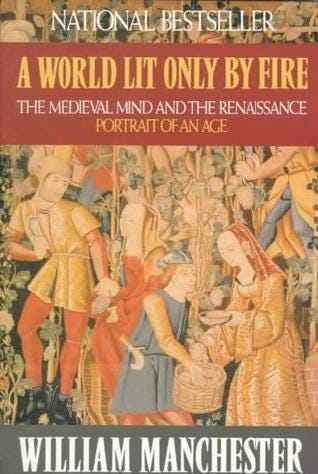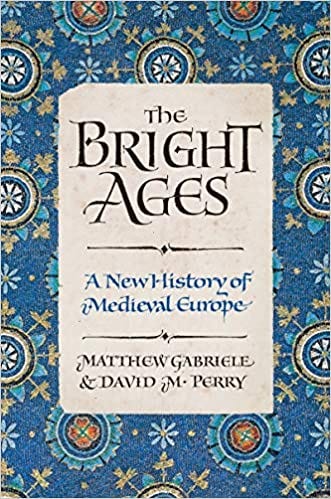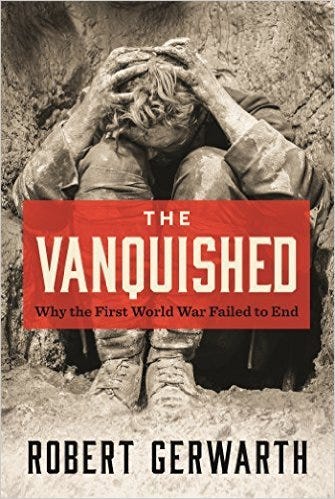So since my last post, things have been really busy. Between monitoring developments in Congress on the budget (more on that next week), rolling out new products at work (ask me about FYDPEvolved, our new budget tool), and my grandmother passing away, it’s been a hectic month. I’ll try to catch up a bit this next week, but for now, some quick blurbs on what I’ve been reading. If you’re curious about what I’m reading, I’m on Goodreads here and generally keep it fairly up-to-date.
Up first, “River Kings” by Cat Jarman. This book is excellent. It’s an in-depth look at the history of the Vikings, with a particular emphasis on their expansion into the area that became Russia and their engagement with the Byzantine Empire and the Silk Road. Jarman opens the book discussing a small jewel found in a Viking grave in England that was made in Gujarat and throughout the book slowly traces its possible progress from East to West. This is tremendously well-written and a really fascinating read. I’d strongly recommend it to anyone who is interested in Vikings or in Medieval Europe.
This book was something of a disappointment. Manchester is a fantastic writer. I loved his Churchill biographies and had high hopes for this going into it. Unfortunately, rather than being something deeply researched, this read more like a passion project of an amateur. Manchester comes across almost as a parody of an early-to-mid-20th century Englishman what with his perspective on the Catholic Church (bad), the influence of Muslims (similar), and the overblown accomplishments of the late Medieval/early Renaissance Europeans. He spends a lot of time on Magellan and, despite his clear affection for the man, I still came away wondering what all the fuss was about. There are other areas where he asserts things that I found questionable without any citation (peasants would go around naked in the summer, courtesans were the cleanest people because they were seen naked, etc.). The writing is fantastic and he’s clearly passionate, but as a history, this was just disappointing.
In order to clean my palette a bit from Manchester’s work, I decided to read ‘The Bright Ages’, which had been on my ‘to read’ list for a while. In many ways, it’s the complete antithesis of ‘A World Lit Only by Fire’. Gabriele & Perry are clearly experts in the field and have spent a lot of time researching this work. The stories and anecdotes they pull forward to support their argument are all carefully cited and frequently highlight people and places that are less well-known. They also are very passionate about the period and their writing is suffused with this enthusiasm. However, I didn’t find their broader thesis particularly compelling, and, in several sections, the need for hectoring of traditional Western research and perspectives was tiring. Fundamentally, the thesis is that the idea of the ‘dark ages’ is fundamentally wrong because, for much of Europe, the transition from the Roman Empire into the second half of the first millennium was less disruptive than is normally assumed. This is true enough for the Byzantines or even the Iberian peninsula post-Muslim conquest but is much harder to support in places like England or France.
Their claim that Rome did not fall, but transitioned, is similarly true - Rome remained an important city and many of the people and politics in Western Europe continued to frame much of what they did against Rome and the Roman empire, but it really strains credulity to say Rome did not fall. The population of Rome went from over one million people in the first couple of centuries of the millennium to less than 100,000 by around the year 1000. I don’t have exact numbers, but my understanding is that you saw large, albeit not so extreme, declines in population in England and France. That’s before you get into the loss of economic activity and general knowledge in these populations. Was this an absolute situation? Of course not, trade continued with the outside world and educated people continued to engage with ideas from outside Europe, but conditions were dramatically worse from a macro perspective for much of this period. I think the authors would acknowledge some of this while arguing that traditional histories overstate the shift, but that seems fairly subjective.
A couple of months back I had become interested in what happened to many of the new countries that formed after the First World War. this was prompted by listening to the Empire podcast on the Ottoman Empire (Empire is awesome, by the way - Dalrymple and Anand are just a wonderful pairing and have so much fun its infectious). ‘Vanquished’ is a fairly comprehensive run through all of the violence that followed the nominal end of World War I (and there is a lot of violence). Fights over territory, civil war, and ethnic cleansing ran well into the 1920s in much of Europe in episodes that are almost completely ignored in most teaching of the period in the US. ‘Vanquished’ takes us through the maelstrom through which most of the old land empires of Austria-Hungary, Russia, an the Ottoman Empire were transfigured into a wide range of new nations. It also highlights how the principle of national self-determination inevitably led to ethnic fighting and atrocities, as governments began to believe they multinational states could not exist. A depressing read, but useful as we again watch ongoing fighting in Eastern Europe.
I’ll have more tomorrow as I try to get fully caught up on things. Thanks for reading.








Interesting reading list for sure. I added 'The Vanquished' to my request list at the library, maybe I'll find time to crack it. Definitely a complete gap in education in the US, at least in my years of formal schooling.